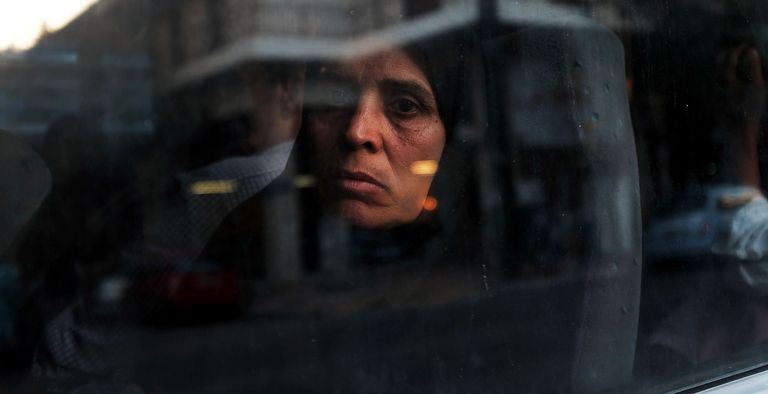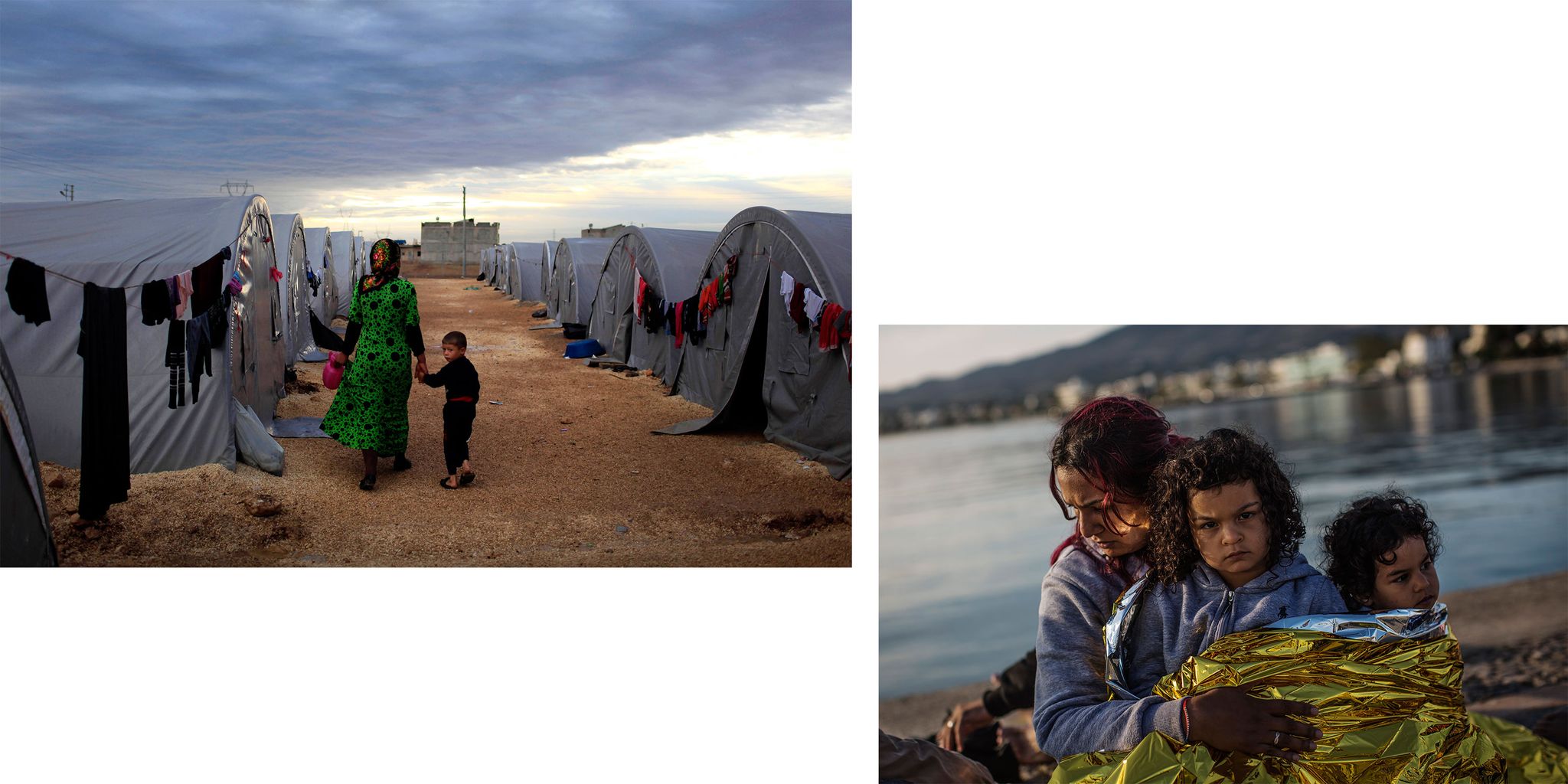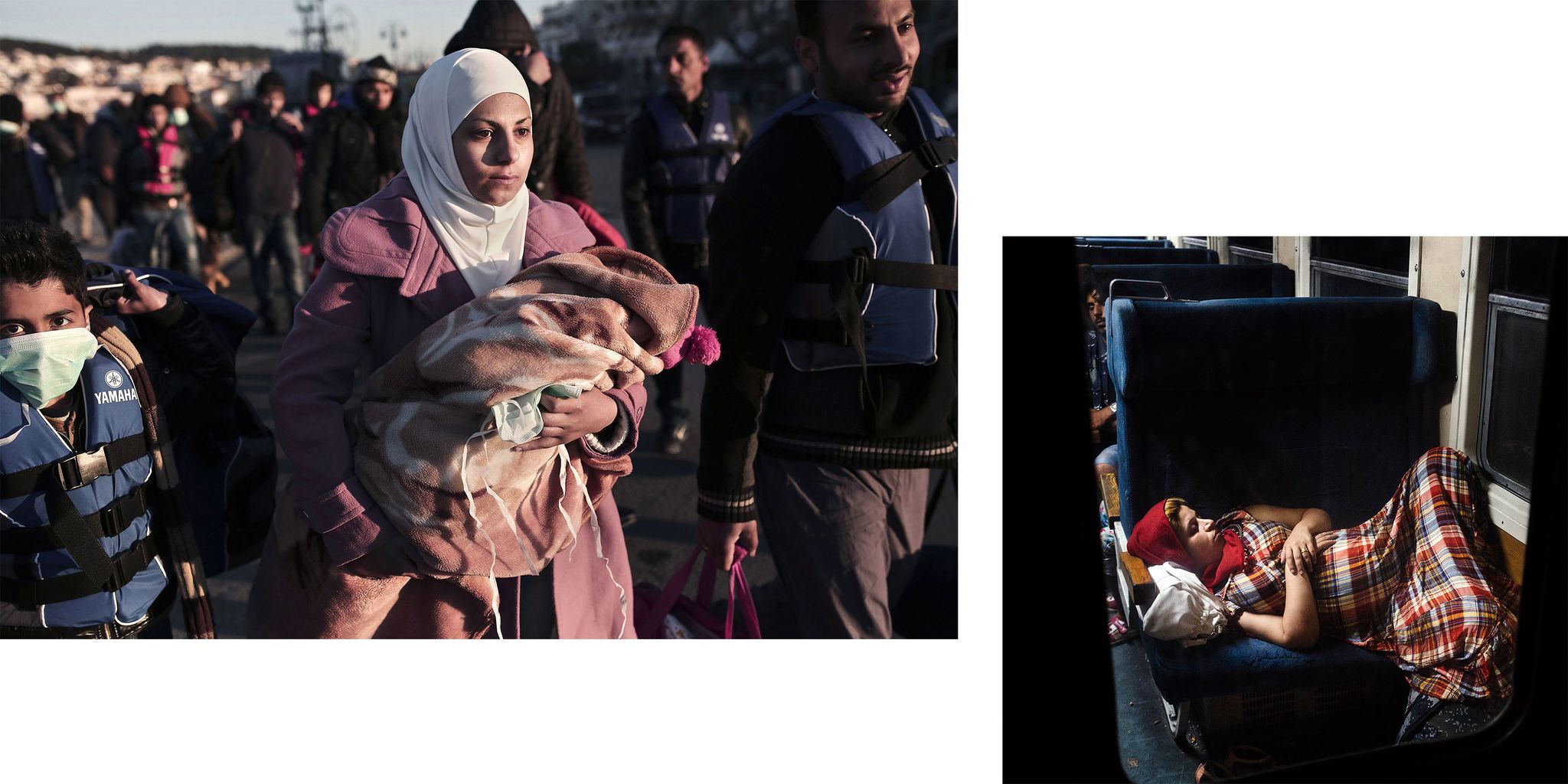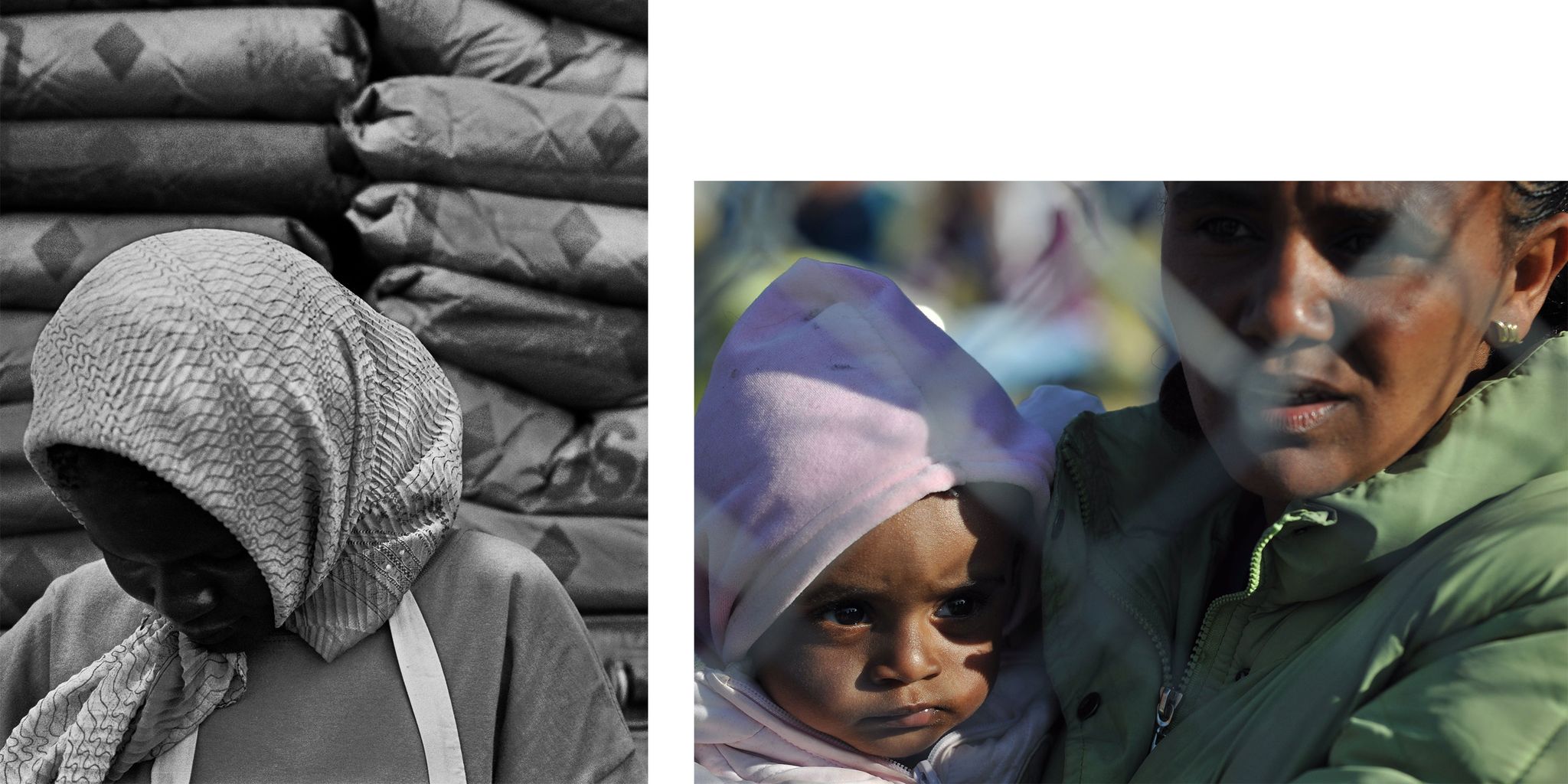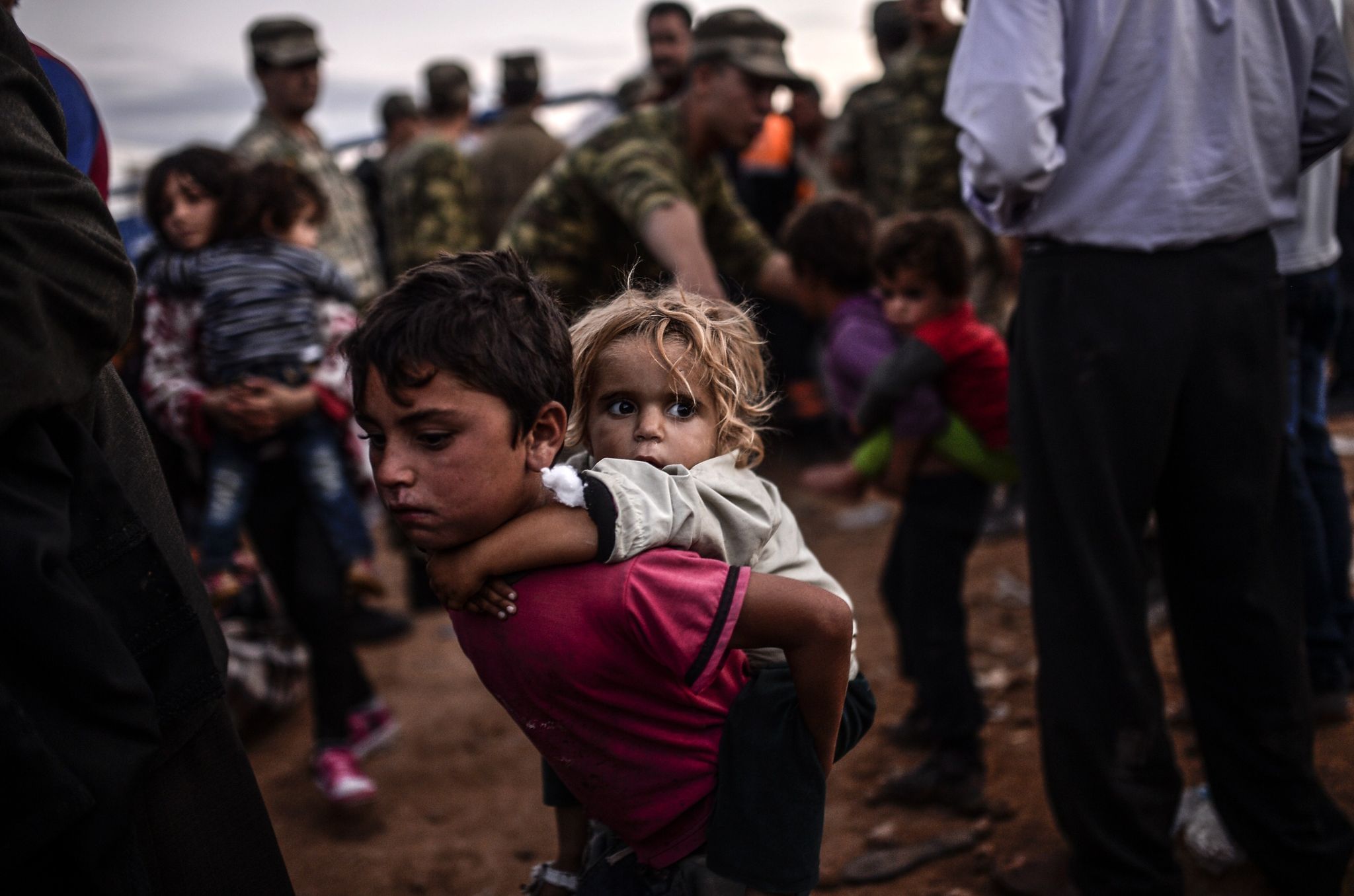The word 'migrant' - now much maligned as a label - has been bandied about so much that we've become desensitised to the plight of refugees and, in many ways, immune to some extremes of human suffering.
The stories that have come out of the refugee crisis have been more harrowing than a lot of people have tolerance for - torture, persecution and rape aren't easy to stomach, so we often close the book on them in our minds, to not put ourselves through the pain of reading about them and having to empathise.
In closing the book on their individual stories, though, we allow refugees to become a pawn in the political mainframe of our society.
Each year, thousands refugees flee to the UK and to the US. It is estimated that about 44 per cent of these refugees are victims of torture. And while there are programmes for enrolling children in schools and rooting out and putting an end to human trafficking, the most severely traumatised often struggle to move forward, suffering in silence.
The obstacles in the way of getting the right help to these people - the majority of whom are women - are multifold. Access to mental health services is minimal in the first place, but that's excluding problems of language barriers, cultural differences and the stigmas involved with asking for that kind of help when there are children involved and others round about, are suffering more obvious physical and logistical issues.
Monika Parikh is a woman trying to address this issue. In 2015, she launched the Berkeley-based Partnerships for Trauma Recovery, to close the gap for culturally aware, trauma-informed and linguistically accessible mental health care for international survivors of human rights abuses.
'One of the biggest things that's missing in the system is culturally and linguistically accessible care' she tells me. The clinical team and Refugee Voices Interpreter Team at PTR, together, speak 24 languages, to try and address just one of the many vital needs.
It was during her time working with victims of child slavery in the fishing industry in Ghana's Lake Volta that Monika became aware of the need for mental health care for these sorts of victims.
'There was just such a tremendous level of trauma and very few resources to address that trauma locally' she says.
After obtaining a degree in psychology and carrying out a clinical placement in Oakland, California, Monika was able to learn more about the needs of the refugee population. 'I was really surprised that there is no official mental health screening or care for refugee populations. We know their stories, we're reading about them all the time in the newspapers and yet this attention to mental health care has really only started taking seed within the last decade or so' she tells me.
One of the biggest problems that these refugees face is being resettled into poverty and high crime. 'Housing is extremely expensive and they receive a few months of support for their housing, but within a few months they're expected to have jobs and pay their rent,' Monika tells me.
'The impact of the trauma and the psychological suffering can really affect their ability to move forward with their lives. If someone is living with PTSD and having severe insomnia, flashbacks, associations or deep depression, it's very difficult to show up for an interview or maintain good relationships in the workplace.'
She tells me how, in addition to the burdens of poverty and PTSD, there is often a racialised obstacle in the way of integration.
'A lot of our clients talk about the racial issues they experience that they haven't encountered in their home countries'. The majority of the victims Monika works with are refugees from Africa or the Middle East.
'LGBT populations are also about 20 per cent of our clients' she tells me. 'We had an LGBT client who fled Uganda and had been abused by the police for three months in jail, then here, he had a psychotic episode whilst driving and the police stopped him and asked him for his driver's license. He was so nervous because it was an experience that he had already had, that he ended up in jail for two months, lost his housing, lost his health insurance, and lost his job. So they're extremely vulnerable because they're still suffering psychologically.'
I ask Monika what some of the main difficulties are in providing care for victims of human rights abuses.
'For the clinicians themselves, it's the risk of secondary trauma, and for the organisation as a whole to do this work, there are very few funding streams focused on these people' she tells me.
'For people working with trauma, self-care is critical' she tells me. 'To be working with a torture survivor and to hear the kinds of things that they are sharing in the first or second sessions; it's not an easy job.'
She also tells me how all of the interpreters at the centre are former refugees. 'Hearing stories they may know from their own personal experience, or from their families again in their own language can be triggering, so we also provide self-care training for them. It's a critical part of the work.'
But Monika also witnesses how these survivors can go on to resume a full life with the right care.
'But to be able to get married and be in a relationship after being so severely traumatised indicates that one of the first things that therapists need to do with the client is to help them rebuild their ability to trust others, because they've just been so deeply wounded by another human being.'
This month, the UK has taken in about 274 child refugees.
Unaccompanied minors are a particularly vulnerable group. Liz Clegg, who ran an unofficial women and children's centre in Calais before the camp's closure reported that as many as 80 per cent of the site's unaccompanied minors exhibited mental health issues that would be flagged up as serious in an institution where normal child protection safeguards existed.
As they begin to navigate the complex asylum system and steer through the thickets of paperwork, it will be important to take heed of this and provide the right care and support to help them overcome trauma and resettle into their new homes.
For more information about Monika's work, click here.
